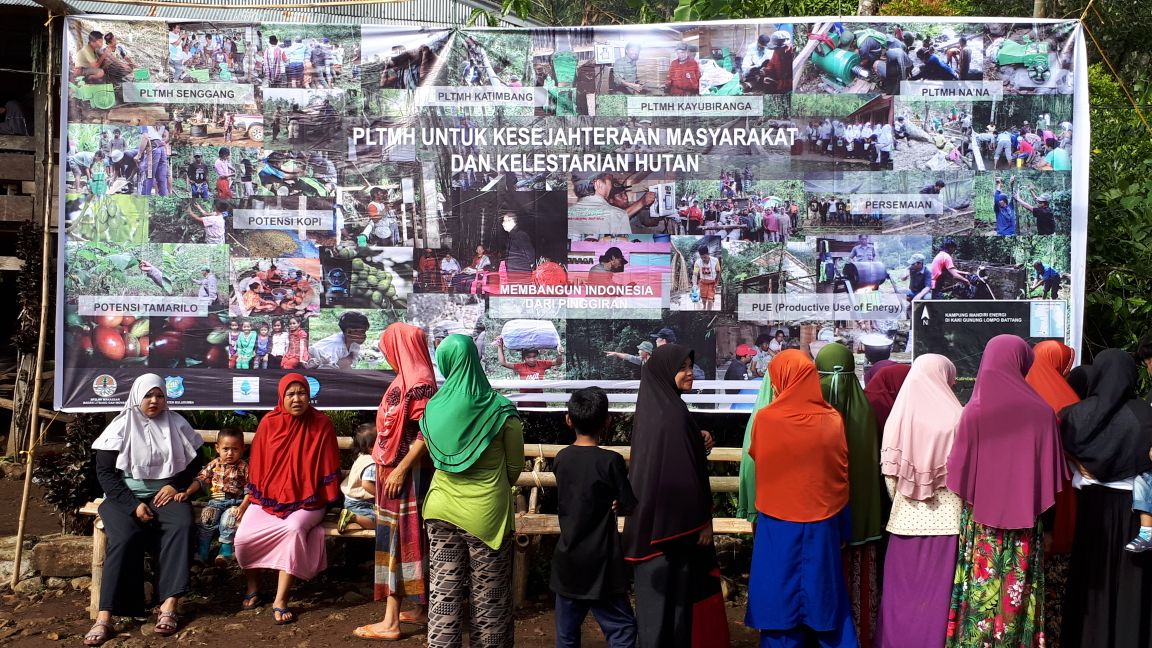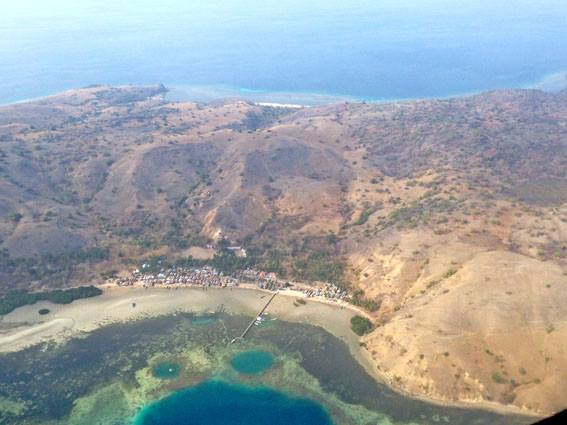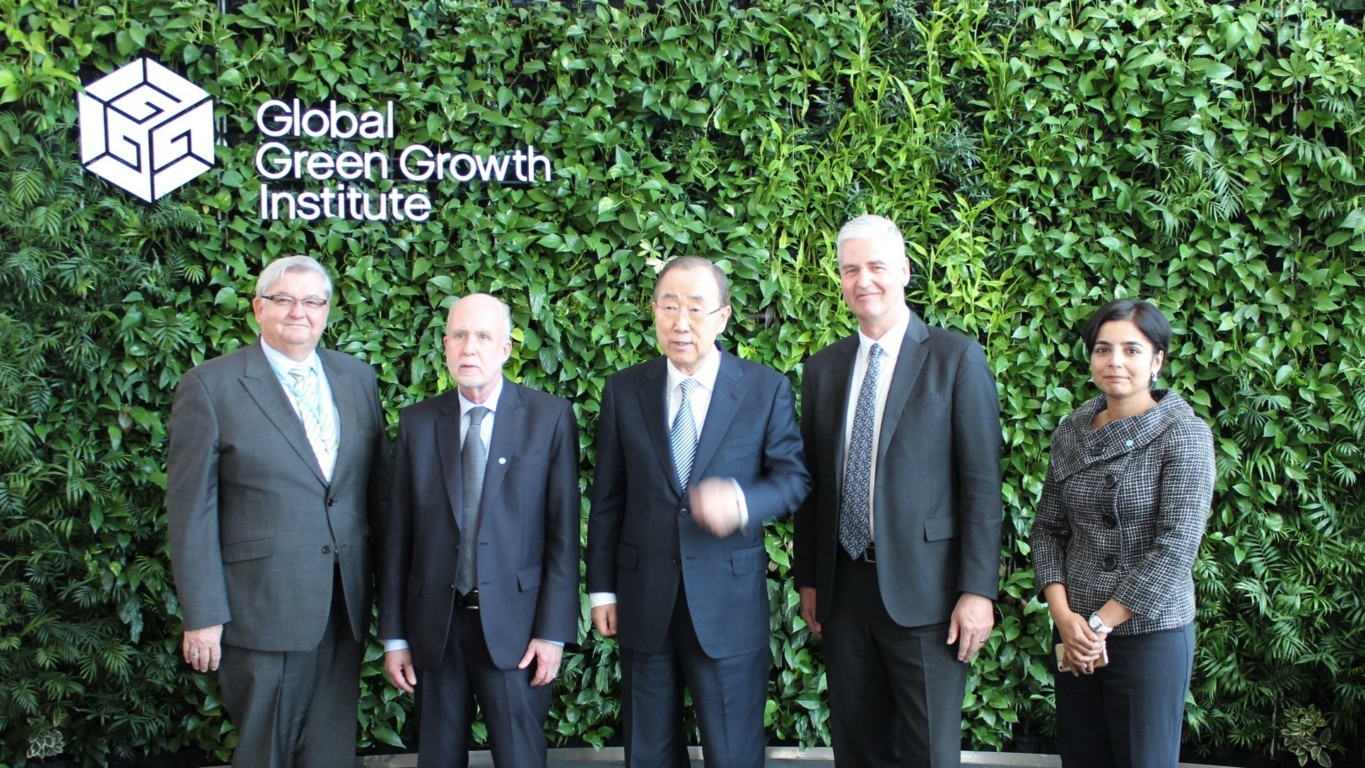Driving Investment for Reducing Emission 80% by 2020
Balikpapan, Indonesia, September 27th, 2017 – The Ministry of Environment and Forestry (MoEF), supported by the Global Green Growth Institute (GGGI) in a jurisdictional learning exchange session entitled “Green Investment for Reducing Deforestation and Forest Degradation” in the Governors’ Climate and Forest Task Force (GCF) Annual Meeting 2017 at Novotel, Balikpapan on September 27, 2017.
The session discusses funding architecture and opportunities for emission reduction programs along with jurisdictional learning exchange regarding green investment from regions of Brazil and Mexico.
The 35 regions from the 9 countries represented by the governors’ task force are said to be one fourth of the world’s tropical forest. The GCF members agreed to reduce deforestation 80% by 2020, which has been stated in the Rio Branco Declaration that was signed at the 2014 GCF Annual Meeting. To achieve this target, the receipt of international financing is imperative and mechanisms is needed to maximize investment quality.
In the session, Dr. Ir. Nur Masripatin, M.For.Sc., Director General of Climate Change, Ministry of Environment and Forestry, Indonesia states, “The Government of Indonesia is currently preparing the establishment of the Environmental Fund Management Agency (BPDLH), in which includes the Climate Change Funding Window, and Reducing Emissions from Deforestation and Forest Degradation (REDD+) funding is part of the Climate Change Funding Window funding. The establishment of BPDLH will be under the Government Regulation on Environmental Economic Instruments. With the currently developed BPDLH modalities, it is expected that the Government of Norway’s commitment to REDD+ partnership through performance-based payments can be immediately be carried out.”
East Kalimantan, which is also known as the “Heart of Borneo”, has launched the “Kaltim Green” program in 2010 as a commitment to reduce emission 26% by 2020. “East Kalimantan’s economy is still dominated by extractive natural resources sectors. Therefore, we need to transform towards sustainable growth. Through our collaboration with GGGI in the Forest Carbon Partnership Facility, we will be able to attract investment by creating bankable project for REDD+ programs in East Kalimantan,” said Ir.H.Ichwansyah, MM, Assistant II of Economic and Administrative Development of East Kalimantan Provincial Secretariat, Indonesia.
In addition to Indonesia, Brazil was among the speakers who shares their experience in the journey to driving investment for REDD+ programs. Alex Marega, Deputy State Secretary of Environment, Mato Grosso, Brazil reveals the Mato Grosso’s multi-stakeholder “Program of Produce, Conserve, Include” (PCI) that mapped 204 initiatives implemented and co-financed by 381 different institutions, public and private. Also from Brazil, Luzimeire Ribiero da Moura Carreira, State Secretary of Environment of Tocantins, Brazil brings to light the region’s strategy to ensure low carbon development and maintain the decline in deforestation curve of the last 10 years.
Lastly, Alfredo Arellano, Minister of Environmental Affairs of Quintana Roo, Yucatan Peninsula, Mexico, shares lessons learned from the Yucatan Peninsula Framework Agreement on Sustainability for 2030 (ASPY 2030). This agreement was signed by 13 states and is also supported by 3 university in commitment to green growth and conservation in the Yucatan Peninsula. Among the goals that are agreed upon is to leverage private and international financing to complement domestic public funding for green economy.
Launched in 2009 by ten Governors from Brazil, Indonesia, and the U.S., GCF was designed to advance jurisdiction-wide approaches to REDD+ and low emission development. This year’s annual meeting takes place in Balikpapan, East Kalimantan on September 25-29, 2017.




